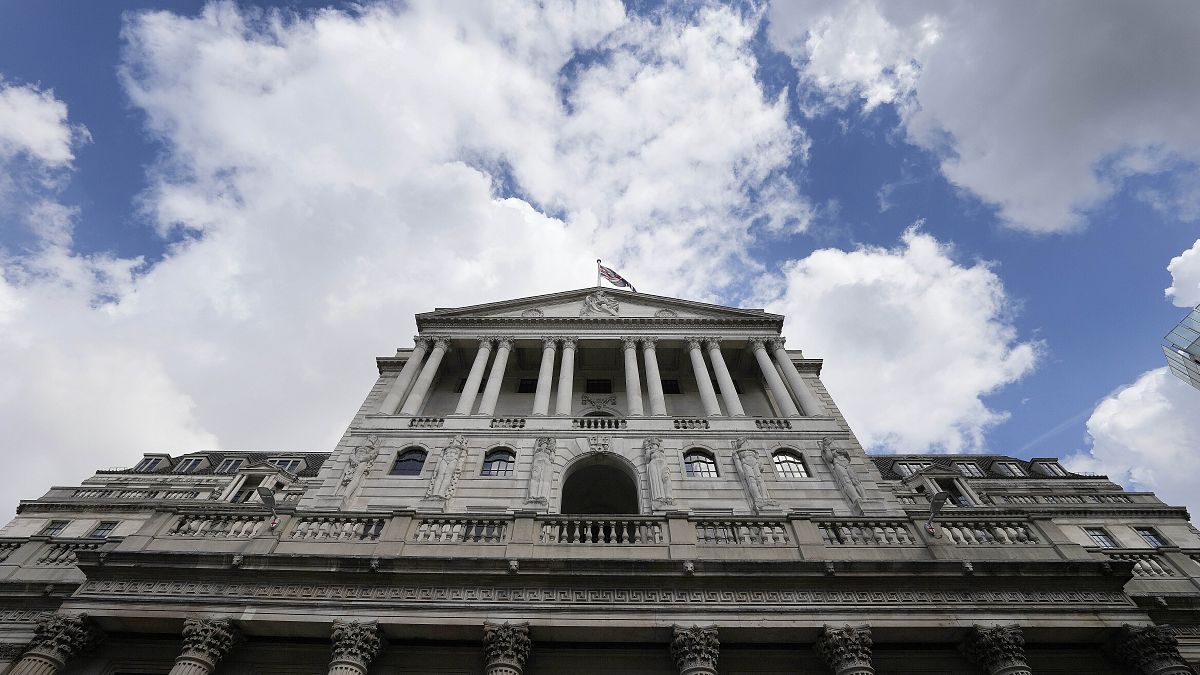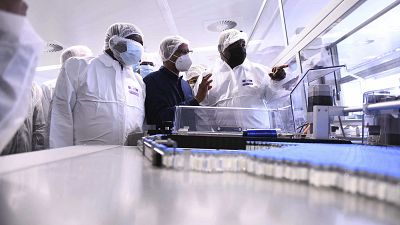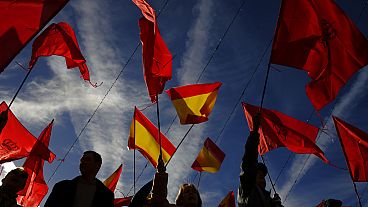The decline was a surprise as most analysts had expected inflation in the UK to rise to 7%, but the new figure is still way above the Bank of England's target of 2%.
Inflation in the UK fell by 0.1% in the year to August in comparison to the previous month, according to the Office for National Statistics (ONS).
The ONS published new figures on Wednesday showing the Consumer Prices Index, which monitors how costs change over time, rose by 6.7% in the 12 months to August compared to 6.8% in July.
The figure has now fallen for three months in a row, and is at its lowest level since Russia's full-scale invasion of Ukraine in February 2022.
While the news was a surprise to many analysts, others said it made sense when taking monetary aggregates into account in inflation forecasts, rather than short term assessments such as changing energy prices.
"The amount of money supply in the economy and what we saw in 2020/21 with the massive increase in money supply foreshadows the forthcoming inflation, since then we’ve seen a massive decline in the money supply and there’s a bit of a lag between the money supply and inflation," said Matthew Lesh, director of public policy at the Institute of Economic Affairs. "Therefore, it's not a surprise that as the money supply has rapidly slowed, you’d expect inflation to go down."
Meanwhile, anti-poverty NGOs remain concerned about the cost of living in the UK.
"The real damage has already been done," said Alfie Stirling, Chief Economist at the Joseph Rowntree Foundation in a statement sent to Euronews.
"For 7.3 million low-income households, the costs of essential goods and services have reached a level that is literally unaffordable. For those already skipping meals and going without hot water, the rate at which prices continue to rise is now secondary."
Stirling called on governments to do more to "protect living standards for those on the lowest incomes", including raising state security benefits "at least in line with inflation".
The ONS said lower hotel and airfare costs and moderate food price rises helped offset an increase in energy prices on the back of higher crude oil prices.
UK economy struggles on, as does most of Europe's
The decline was a surprise to many as most analysts had expected inflation in the UK to rise to 7%, but the new figure is still way above the Bank of England's target of 2% and higher than any other G7 country.
The central bank is due to announce its next decision on interest rates on Thursday, with most economists thinking it will raise its main borrowing rate once again by a quarter of a percentage point to a near 16-year high of 5.5%.
Raising interest rates is often used as a tool to slow the economy by reducing demand and therefore put the breaks on price rises.
The fall in UK inflation comes after inflation in the Eurozone was revised down to 5.2% in August.
The UK is in the middle of the European pack when it comes to inflation, according to Lesh, having a slightly lower rate than Poland and Austria, but higher than Spain and Italy.
"Everyone still has high inflation and economies haven’t grown much so in a long term sense it’s difficult for everyone, but the UK isn’t an outlier," he said.
While the surprise dip in UK inflation is an encouragement, it follows the ONS announcing last week that the country's GDP shrunk in July, with higher rates of unemployment but also higher wages.



